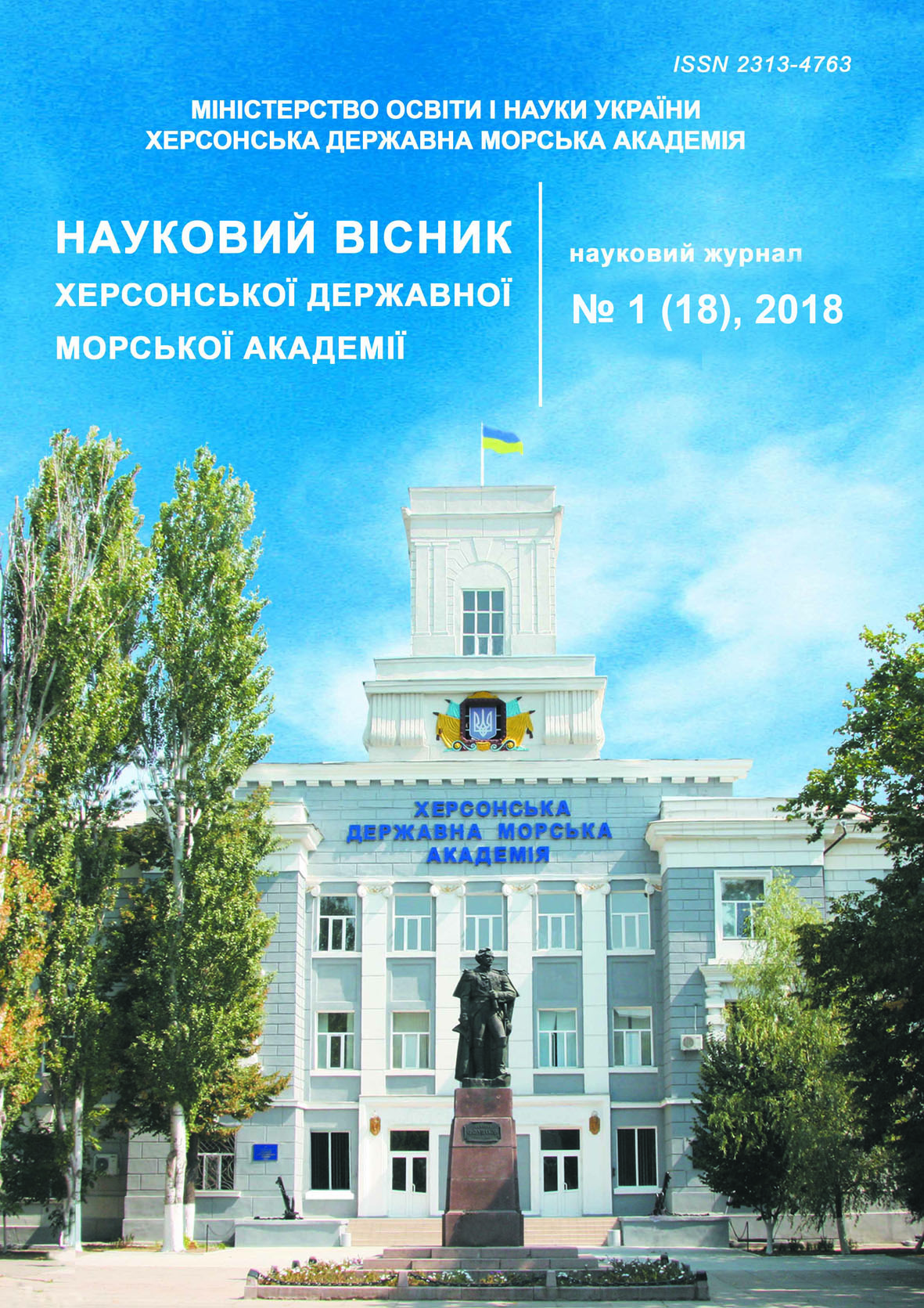INTRODUCTION OF MODERN INNOVATIVE TEACHING TECHNOLOGIES IN THE EDUCATIONAL PROCESS
Abstract
The modern attitude towards the competency of the applicant for the employment of any position creates new higher requirements for the level of training of specialists of the appropriate profile. The use of information (innovative) computer technologies in professional activities is an integral part of the general competencies of the specialist. Therefore, the attitude to the problem of improving the information culture of students, the introduction of information technologies into the training of specialists in maritime specialists, their preparation for solving complex problems with the help of computer equipment in the Kherson State Maritime Academy is very serious. At present, the need for maritime transport in specialists capable of developing, operating and maintaining modern information systems for managing transport technological processes is growing. This calls for the creation of new learning conditions, new forms of presentation of teaching material, methods of working with new teaching tools and managing independent cognitive activities.
Particularly relevant is the introduction of a distance learning system in specialized educational institutions, such as, for example, the Kherson State Maritime Academy. In accordance with the curriculum, cadets annually undergo a swimming practice, which lasts from four to six months, the cadet for this period is divorced from the directly auditor educational process. Active use of the distance learning system allows him not to interrupt the theoretical and practical component of training, maintain communication with fellow students, teachers, receive necessary consultations.
Independent work of the cadet with the support of such information environment, as a site of distance learning, always positively influences its level of preparation. Therefore, the main task of the project is to provide the cadet with a high-quality information resource, provide it with convenient services, full content and the ability to communicate in a dialogue mode with both teachers and cadets of the Academy.
References
Kukharenko, V.М. (2012). Theory of teaching at the present stage of development of distance learning. Theory and Method of E-learning, Krivoy Rog, 3, 153-161.
Trius, Yu.V., Gerasimenko, I.V., Franchuk V.M. (2016). Electronic HEI system based on MOODLE. Cherkassy, 220.
Kravtsov, G.M. (2008). The system of monitoring the quality of electronic information resources of the university. Information Technologies in Education, 2, 42-46.
Kravtsov, G.M., Tarasych, Yu.G. (2013). The modern state of distance learning in higher educational institutions of Ukraine. Materials of the second international scientific-practical conference «Problems of the theory and practice of distance and electronic education». 50-54.
Kukharenko, V.M., Rybalko, O. V., Syrotenko, N.G. (2008). Distance Learning: Terms of Use. Distance course (3rd ed.). Kharkiv, NTU KhPI Torsing. 320.
Kukharenko, V.M. (2015). System approach to mixed learning. Information Technologies in Education. 24, 53-67.
Pometun O.I., Pyrozhenko L.V. (2010). Interaktyvni tekhnolohii navchannia: Nauk.-metod. posibn. Vydavnytstvo A.S.K., 192.
Sichkaruk O.I. (2008). Interaktyvni metody navchannia u vyshchii shkol. Navch.-metod. posibnyk. Takson, 88.
Panfylova, A. P. (2009). Ynnovatsyonnie pedahohycheskye tekhnolohyy : Aktyvnoe obuchenye. Uchebnoe posobye. «Akademyia», 192.
Kravtsova L.V.,Zaitseva T.V., Kaminska N.G. (2017). Analiz efektyvnosti systemy dystantsiinoho navchannia v protsesi perevirky kompetentsii. Piata mizhnarodna naukovo-praktychna konferentsiia «MoodleMoot Ukraine 2017. Kyiv, 26-27.
The KSMA’s Distance Learning Site. Retrieved from http://www.mdl.kma.ks.ua/






